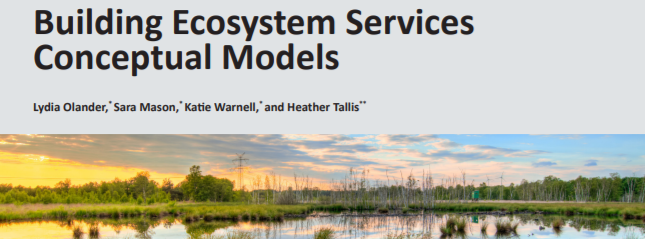The National Ecosystem Services Partnership (US) has published the Ecosystem Services Conceptual Model Series. The Series provides a collection of resources explaining why ecosystem services conceptual models (ESCMs) are useful for decision making, providing guidance for building ESCMs, and describing NESP’s initial efforts to standardize and apply these models with federal agency partners. [Read more…] about New Paper Series from the National Ecosystem Services Partnership
Publications
ESP Greek National Network (HESP) Update
Hereby some news from the Greek ESP -HESP: sessions at upcoming conferences, new publications, projects and more:
HESP member Kostas Kormas, Professor of Aquatic microbial ecology from Thessaly University, is a member of the scientific committee of the 3rd Hydromedit conference of 8-11 November in Volos, Greece. [Read more…] about ESP Greek National Network (HESP) Update
News from the ESP German National Network
New publications, sessions at the ESP Europe Conference 2018 and guest presentations! Here are the latest news from the National Network of Germany:
The colleagues from the German NN, Martin-Luther-University Halle-Wittenberg, Dept. Sustainable Landscape Development, have published two interesting papers to improve the ecosystem services concept in regional and urban planning. [Read more…] about News from the ESP German National Network
Updates from the Biome Working Group 10 – Urban systems
Members of the BWG 10 have been involved in the publication of the open access book ‘Urban Planet’ published by Cambridge University Press (2018). Global urbanization promises better services, stronger economies, and more connections; it also carries risks and unforeseeable consequences. [Read more…] about Updates from the Biome Working Group 10 – Urban systems
New publication on recreational ES
A new article on recreational services has been published in Ecosystem Service Journal with the title ‘Spatial dimensions of recreational ecosystem service values: A review of meta-analyses and a combination of meta-analytic value-transfer and GIS’.




